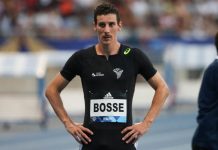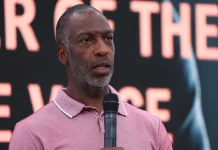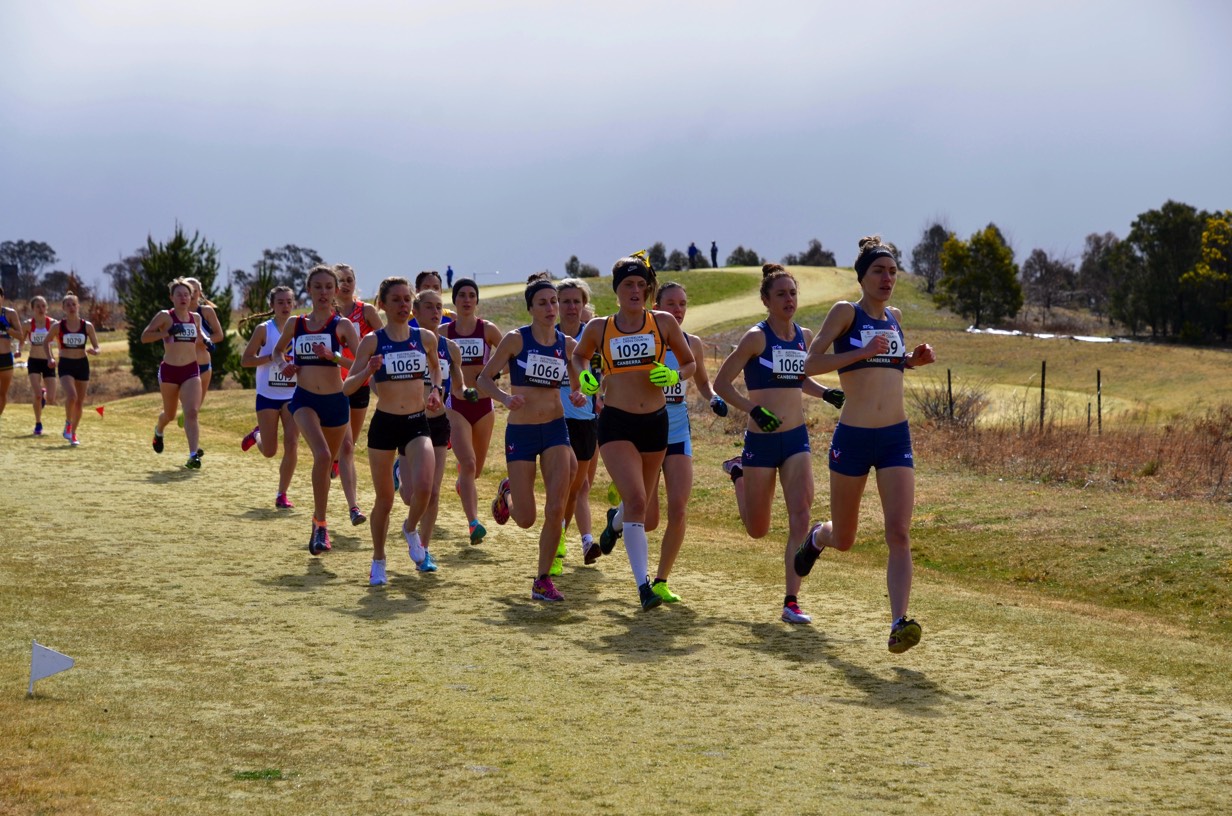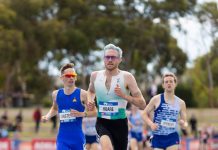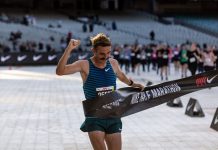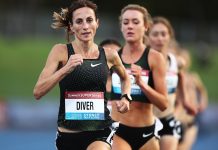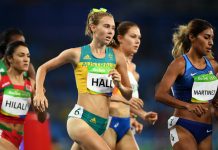By Len Johnson – Runner’s Tribe – Len is RT’s lead columnist, a sub 2:20 marathoner, Author of ‘The Landy Era’ and a key writer for the IAAF, amongst other things…
The Australian half-marathon championships at Maroochydore one weekend, the Australian cross-country championships at Maleny this weekend (25 August): it’s been an embarrassment of riches on the Sunshine Coast this past week.
Riches – well, riches because it’s two Australian championships, I suppose, bringing together some of the best distance runners in the nation. But embarrassing, too, because two compatible events are more-or-less competing against each other for the same talent pool.
Jack Rayner won the men’s half-marathon title from defending champion Collis Birmingham and Nic Harman. Sinead Diver won the women’s title (in an outstanding 69:22 which jumped her over Eloise Wellings into seventh place on the national all-time list) from Marnie Ponton and Casey Wood.
Ideally, all six would have run the cross-country titles, to be contested on Maleny Golf Course on the Sunshine Coast hinterland. Unfortunately, only Harman is among the entries for the cross-country. Rayner, one of the form athletes of the winter season, won a close race in the Victorian 10km cross-country title from Andrew Buchanan, last year’s national champion. Buchanan will be on hand to defend his title, Rayner is not running.
Likewise, Madeline Hills defeated Diver to win the Victorian women’s 10km title and, in a reverse of the men’s situation, this time the winner of that race is competing in the cross-country, the runner-up is not. The national cross-country would have been enriched by the presence of some or all of Rayner, Birmingham, Diver, Ponton and Wood.
The clash between the cross-country and the half-marathon is a relatively recent one. For most of the recent past, the half-marathon title has been decided at the Gold Coast, Sydney or Melbourne marathons, the closest of which to the usual late-August date for the cross-country is Sydney. There was sufficient separation: the awarding of the title to the Sunshine Coast these past two years drops the half-marathon into a month already crowded with state events, the City2Surf and the cross-country.
Something has to give and as one long-time supporter laments: “It always seems to be the cross-country.”
Which brings me to the second area in which the national cross-country is not being supported as, in this writer’s view, it should be. It does not offer a direct path into the Australian team for next year’s world cross-country championships. Selection will be based entirely around the trial race scheduled for Canberra in January, 2019 (at least I assume it will be. The event page on Athletics Australia’s website says: “More information . . . will be available on this page in the near future”).
Granted it is not a wise policy to select a team for a championships six months hence on the results of the national title (though we don’t seem to mind doing precisely that for the Olympics and world championships), but surely at least one place in the team could be reserved for the national champions. The Australian cross-country championships should represent the culmination of the Australian winter season and the winners (at least) accorded the same status as national champions in track and field events.
Farewell, Ron Carter
If you are over 40 years old and have followed sport in Melbourne, you will almost certainly have enjoyed the work of Ron Carter, who passed away last weekend (18-19 August).
Carter was the last great general sports reporter in Australian sport. For almost 40 years he covered Australian Rules footy and Olympic sport for The Age. For most of that period he was the chief football writer and the chief Olympic writer. He was the last of the dinosaurs: no journalist covers such a wide range these days.
Ron knew everything and everyone. I covered my first Olympics for The Age in Barcelona in 1992. Ron, who’d been covering Olympics since paying his own way to Helsinki in 1952 (and working his way back) was the senior member of our team. On our first day in Spain, our bus to the Village for a John Coates press conference was driven by a first-day volunteer from Seville. Once he began stopping to ask pedestrians the route, we quickly figured out we were lost. No problem: when we got to the Village, the press conference over, John Coates sat us all down and went over the details again over a coffee.
That was the sort of respect top officials had for Ron. Occasionally – regularly, actually – he might embarrass them with a story he wrote, but he was always willing to cover both sides once he’d got the ‘scoop’ out of the way.
We had a great time of it in Barcelona, despite working 15-20 hour days most of the time. Ron did the swimming with Peter Bowers, the chief political writer for the Sydney Morning Herald, while I legged it between the hockey and the athletics. Garry Linnell covered the news. Staurt Hannagan took the pictures.
Our last day in Barcelona was free, the afternoon spent drinking beer (and eating, for nutritional purposes) in an open-air bar just up the road from the media village. We got four copies of the receipt to cover our expenses claim and fell about laughing on reading the item description: “36 tubos.”
We got back just in time for a round of redundancies. Ron told us he was going to ask how much he was worth after 36 years. “It must be a million,” he reckoned. “They won’t pay it.” They did, and he went off into retirement with his wife, Dorothy, formerly Dorothy Rose, a state hurdles champion and member of Glenhuntly’s Team of the Century. It was a poor deal all round: it took about four journalists to do Ron’s work.
There weren’t many sports journos as good as Ron Carter and there won’t be any more. They’ve stopped making that model.



